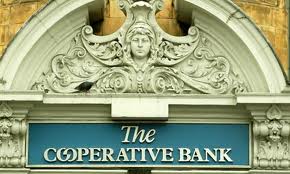Learn about PROUT's Rational Banking System HERE
How does PROUT compare or contrast with capitalism or communism? Explore the answers HERE
Guest article
The Federal Reserve has implemented new standards called “Base III accord” which is being sold to the public as a means to cushion the banks against expected “severe economic downturns”.
This is part of stricter capital regulations that will facilitate long-term changes in a global effort to prop-up global financial institutions.
The Fed has calculated assets and risks. Their answer is to severely restrict lending.
Ben Bernanke, chair of the Federal Reserve, released a statement: “With these revisions to our capital rules, banking organizations will be better able to withstand periods of financial stress, thus contributing to the overall health of the U.S. economy.”
Bernanke expects that 100 banks will have to raise $4.5 billion in capital by 2019.
He said: “This framework requires banking organizations to hold more and higher quality capital, which acts as a financial cushion to absorb losses, while reducing the incentive for firms to take excessive risks.”
Outlined in the rules, mortgages are considered too complex and therefore their application in the financial scheme would need to be limited.
This means that local, regional and community banks will have to downscale their lending practices.
The international agreement Bernanke alluded to is touted as a way to prevent another financial crisis, as was seen in 2008.
Expected to be implemented by fall of 2013, the largest technocratic institutions are being directed to “downsize” which is being seen as a possible threat to the US economy – and eventually to the global financial market.
The Federal Deposit Insurance Corp (FDIC), the Office of the Comptroller for the Currency (OCC) and the Fed’s Board of Governors (FBG) will give their approval to this new set of rules later this week.
Essentially, assets within the banking sector are estimated at 95% with less than $10 billion accounted for. All banks must meet the Fed’s new rules to show 4.5% of assets in high-quality capital such as common stock and retained earnings.
Frank Keating, head of the American Bankers Association (ABA) believes that real-world application of these rules will tell if they are effective or if more “tweaking” is needed to meet international standards within the domestic US.
Coryann Stefansson, managing director for Price Waterhouse Coopers, said : “We’re in the first few chapters of a horror story for the big banks, with the worst to come. It’s clear that the U.S. is willing to push for stronger capital.”
The banks identified as propping up the system are:
• Bank of America
• Citigroup
• Morgan Stanley
• State Street Corp
• Bank of New York Mellon
• Citigroup
• Morgan Stanley
• State Street Corp
• Bank of New York Mellon
The Bank of International Settlements (BIS) and the Basel Committee on Banking Supervisors (BCBS) has applied the underlying pressure on US banks to liquidate to appease global markets.
The American taxpayer is picking up the tab for this turn of events.
BIS is giving these banks until 2019 to comply with their new rules. Capital to prop up the banks will be needed while they liquidate assets such as bonds, mortgages, loans and stock shares.
Consequences of the liquidation have been evidenced in governmental austerity and movement toward sovereign debt by the technocrats. Any asset assessed by Basel can and is being used as collateral of the banksters in an anything goes temperament while the squandering of wealth continues.
BIS has used the scheme of forcing capital from the banks to control the measures taken globally. International banking constraints mandated in these new rules are putting more control into the hands of “shadow banks” where supervision is unheard of.
Michel Barnier, commissioner of BIS, stated that the Basel Committee has “revised liquidity coverage ratio and the gradual approach for its phasing-in by clearly defined dates.
This is significant progress which addresses issues already raised by the European Commission. We now need to make full use of the observation period, and learn from the reports that the European Banking Authority will prepare on the results of the observation period, before formally implementing in 2015 the liquidity coverage ratio under EU law in line with the Basel standards.”
Liquidity is seen by the technocrats as a necessity for “the stability of banks as well as for their role in supporting wider economic recovery.”
At a time when the introduction of a global currency to replace all fiat across the globe is at hand, it makes perfect sense that the technocrats are positioning themselves to control the central banks as offshoot branches of their operation. At the head of this monster, the BIS sets the tone and directs the banksters with limitations and orders.
The European Central Bank (ECB) is setting the stage of a complete financial collapse of fiat currencies across the globe. Joining in the scheme are other technocratic institutions such as the Federal Reserve, the Bank of Canada, the Bank of England, the Bank of Japan and the Swiss National Bank.
Under the guise of preventing a system failure during the global financial crisis, there will be “an extension of the existing temporary US dollar liquidity swap arrangements until February 1, 2014.”
This action allows the central bankers to liquidate currencies under their jurisdiction “should market conditions so warrant.”
Under this plan, euros backed by nothing can continue to pour into the system throughout the Eurozone “in addition to the existing liquidity-providing operations” in the US. This liquidation will take place “until further notice.”
This article originally appeared HERE, written and published by a fan of Representative Ron Paul. All guest articles are the opinions of their authors, posting them here is not necessarily an endorsement of their information, perspective, values or beliefs.


